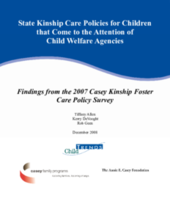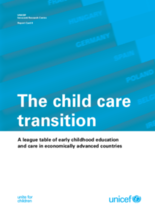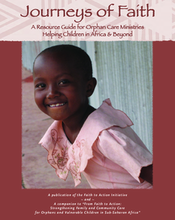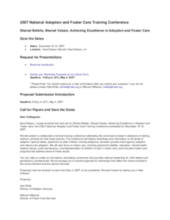Displaying 2441 - 2450 of 2509
The current assessment is the fourth in a series of independent assessments examining core systemic issues in Michigan’s child protection system.
Explores the disparity in support given to children in formal foster care in the United States compared to those in informal kin arrangements
In this meta-analysis of 75 studies on more than 3,888 children in 19 different countries, the intellectual development of children living in children's homes (orphanages) was compared with that of children living with their (foster) families.
A random sample of licensed foster parents caring for children with disabilities in a major Canadian city was asked “what are the problems you encounter fostering a child with a disability?”
A great change is coming over childhood in the world’s richest countries. Today’s rising generation is the first in which a majority is spending a large part of early childhood in some form of out-of-home child care. This Report Card discusses the opportunities and risks involved in the child care transition, and proposes internationally applicable benchmarks for early childhood care and education.
This issue of A Closer Look examines:
This resource is designed to be used as a guide for those in the Faith community working with orphaned children.
The CWLA National Adoption and Foster Care Training Conference is scheduled for December 10-12, 2007, in New Orleans, Louisiana. The conference will feature workshops and information on all facets of adoption and foster care.
The U.S. Embassy in Vietnam points to poor regulation as the basis for denying intercountry adoptions.
A personal story about adopting a child from Guatemala.






